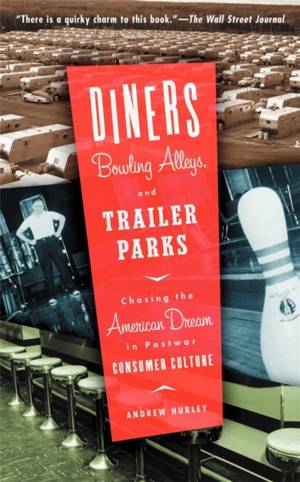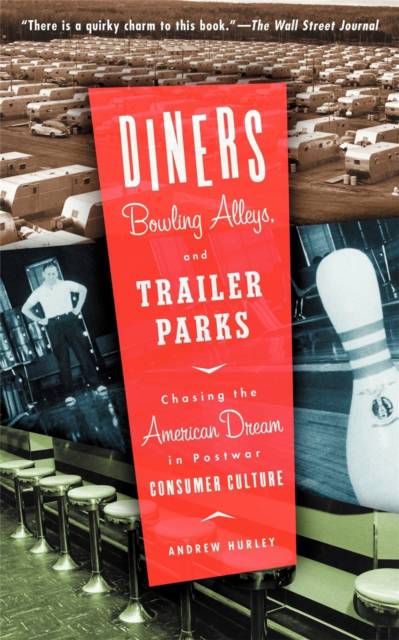
- Afhalen na 1 uur in een winkel met voorraad
- Gratis thuislevering in België vanaf € 30
- Ruim aanbod met 7 miljoen producten
- Afhalen na 1 uur in een winkel met voorraad
- Gratis thuislevering in België vanaf € 30
- Ruim aanbod met 7 miljoen producten
Zoeken
Diners, Bowling Alleys, and Trailer Parks
Chasing the American Dream in Postwar Consumer Culture
Andrew Hurley
Paperback | Engels
€ 38,45
+ 76 punten
Omschrijving
The years immediately following the Second World War witnessed a dramatic transformation of America's working-class suburbs, driven by an unprecedented post-war prosperity and a burgeoning consumer culture. Chrome and neon were the new currency in this newly vital consumer culture, and no post-war consumer products trafficked more heavily in this currency than diners, bowling alleys, and trailer parks. Through these three distinctively American institutions, Andrew Hurley examines the struggle of Americans with modest means to attain the good life after two long decades of depression and war. He tells this story of the humble origins, explosive growth, and gradual, sad decline of the diner, bowling alley, and trailer park in expert fashion. This is cultural and social history that knows how to entertain.
Specificaties
Betrokkenen
- Auteur(s):
- Uitgeverij:
Inhoud
- Aantal bladzijden:
- 432
- Taal:
- Engels
Eigenschappen
- Productcode (EAN):
- 9780465031870
- Verschijningsdatum:
- 1/02/2002
- Uitvoering:
- Paperback
- Formaat:
- Trade paperback (VS)
- Afmetingen:
- 127 mm x 205 mm
- Gewicht:
- 462 g

Alleen bij Standaard Boekhandel
+ 76 punten op je klantenkaart van Standaard Boekhandel
Beoordelingen
We publiceren alleen reviews die voldoen aan de voorwaarden voor reviews. Bekijk onze voorwaarden voor reviews.











